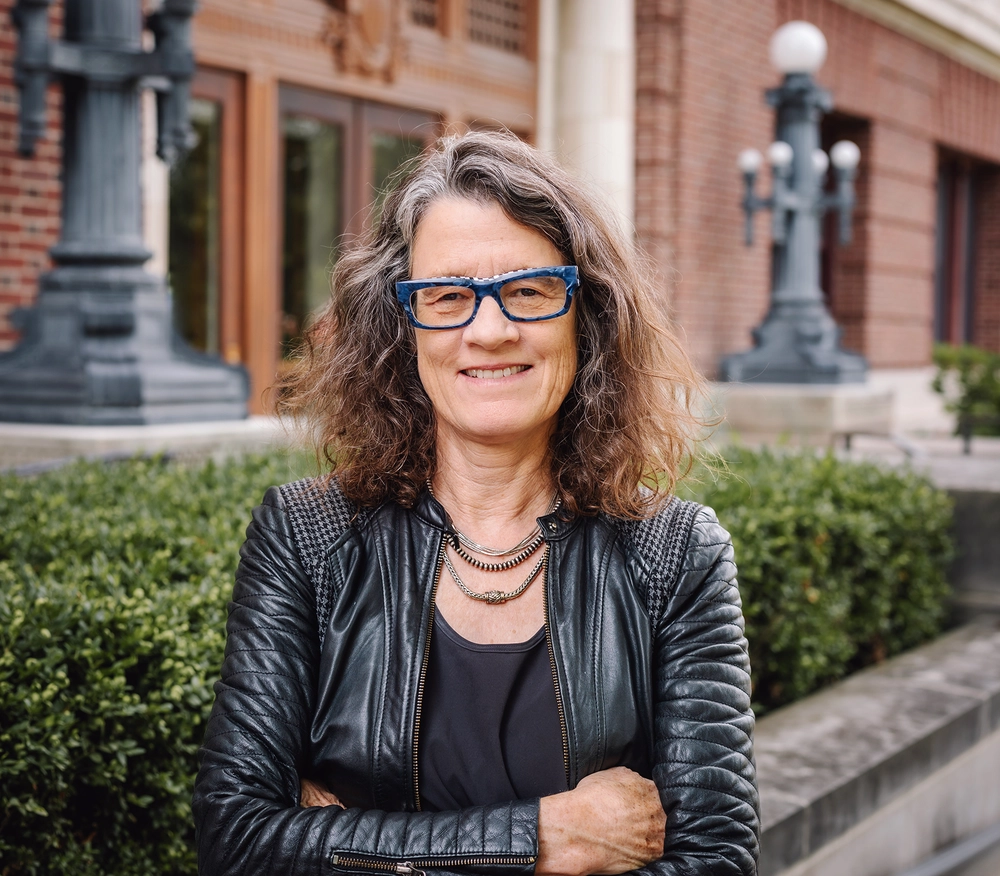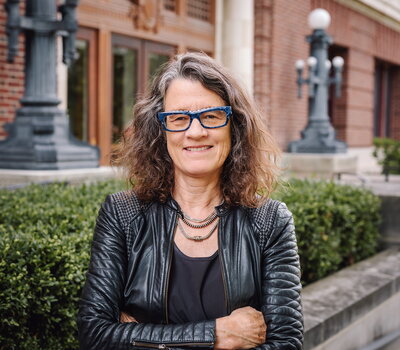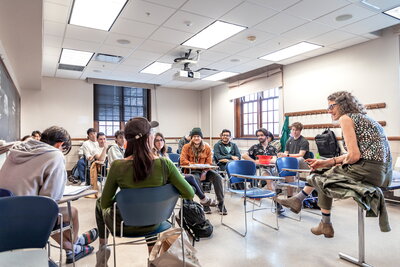

When professor Leslie J. Reagan entered her graduate program at the University of Wisconsin-Madison she and the other students in her cohort were told it was unlikely they would ever get an academic job. The field of women's history was virtually nonexistent at the time and the hiring of historians at an extreme low.
Now, after 33 years at the University of Illinois Urbana-Champaign, Reagan—a path-breaking and internationally recognized scholar of reproduction, medicine, public health, law, social activism, media, women, gender, sexuality, and disability—has decided to retire.
Reagan earned her bachelor’s degree at the University of California, Davis and her PhD in history at the University of Wisconsin-Madison, where she studied in the first women’s history program in the country and the History of Medicine Program in the College of Medicine.
While at Wisconsin, Reagan studied under Gerda Lerner, a founder of the field of women's history, and wrote her dissertation with advisors Judith Walzer Leavitt, Linda Gordon, and Hendrik Hartog. She wrote her dissertation on the history of abortion despite being advised by Lerner to pick a different topic because she feared it would jeopardize her career. Her dissertation led to her award-winning book, When Abortion Was a Crime: Women, Medicine, and Law in the United States, 1867-1973, a definitive history of abortion during the century prior to Roe V. Wade. Justice Stephen Bryer, joined by Justices Sonia Sotomayor and Elena Kagan, cited the book in his dissenting opinion in Dobbs v. Jackson, the U.S. Supreme Court case that ruled there is no constitutional right to abortion. Reagan also contributed to the AHA-OAH Historians amici brief on behalf of the Jackson Women's Health Clinic in the Dobbs case.
Her other books include Dangerous Pregnancies: Mothers, Disabilities, and Abortion in Modern America, which investigates a previously unexamined relationship between rubella, abortion, and disability rights, and Medicine’s Moving Pictures: Medicine, Health, and Bodies in American Film and Television, which she co-edited with Nancy Tomes and Paula Treichler.
Reagan’s scholarship, teaching, and service has earned her numerous awards within the Department of History, College of LAS, College of Medicine, and University of Illinois. She was recently named the Robert W. Schaefer Professor in Liberal Arts and Sciences. Her scholarship has also been recognized by the Law and Society Association, American Anthropological Association, American Historical Association, American Public Health Association, and American Association for the History of Medicine, among others. In addition to the Department of History, Reagan held appointments in gender and women’s studies, law, media and cinema studies, and the Medical Humanities and Social Sciences in the College of Medicine.
“Her college and the profession have characterized Leslie as one of the foremost historians of her generation and commended her for her ethical engagement, rigorous research and incisive analysis,” said history professor Kristin Hoganson at the recent ceremony honoring Reagan as the Robert W. Schaefer Professor in Liberal Arts and Sciences. “We are fortunate that Leslie has made her career at Illinois, for she has been, in addition to an illustrious scholar and public facing intellectual, a fabulous colleague, mentor, advisor, teacher and community builder, who in all these respects has worked to advance the collective good.”
Some of the courses Reagan taught included History of Medicine and Reacting to the Past, an experiential learning course where students role-play as historical figures. Her favorite part of teaching is seeing students develop their confidence.

“I love seeing students discover things, but also develop their ability to speak in public,” she said. “I’ve also really enjoyed teaching the content, especially history of medicine where I taught history students but also students who are across all majors, especially pre-med and healthcare fields.”
Public engagement has always been an important part of Reagan's work and she will continue to publish op-eds in retirement. She has been a Public Voices Fellow with the Op-ed Project, regularly writes for The Washington Post, Time, Slate, Politico, and Ms. Magazine and is a sought-after commentator on BBC, CNN, CBC Radio, MSNBC, NPR, and more.
She is also currently working on her next book Toxic Legacies: Agent Orange in the United States and Vietnam, on chemical warfare, disabilities, and culture. The book will examine the movements by veterans’, women’s, and environmental groups to stop the use of agent orange as an herbicide and to publicize the conditions and disabilities caused by exposure.
While she plans to continue working as a scholar, Reagan is excited to have more time for creative pursuits, which have always been important to her.
“I will still be a historian in the way that I think and live in the world,” she said. “The creative projects are part of who I am and what I’ll be doing no matter where I am.”
She’s looking forward to going on more adventures in her camper van and beginning to paint again, a skill she picked up in the LAS program of Faculty Study in a Second Discipline.
“I got to do museum studies and art and design, because a lot of the materials that I’m looking at for my book on agent orange are held in museums, or they’re quilts that veteran’s wives produced as part of their protest movement. I took some painting classes with Steven Hudson in the art department and just totally loved it. It was so much fun.”
In her acceptance speech at the recent investiture ceremony, Reagan encouraged her fellow scholars to follow the paths that interest them, even if it breaks conventions.
“If I have any advice to give about the life of being an intellectual and professor [this is] probably the most important,” she said. “Do what matters to you, even if you are advised that it’s risky.”